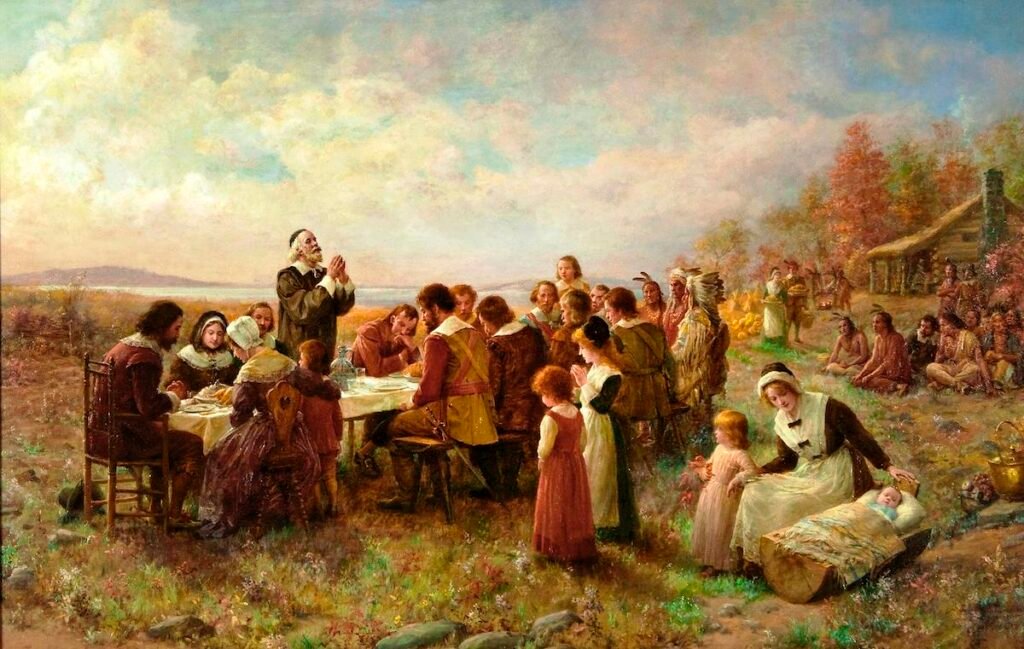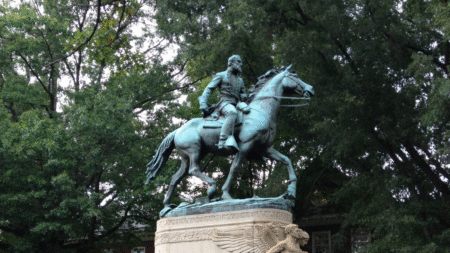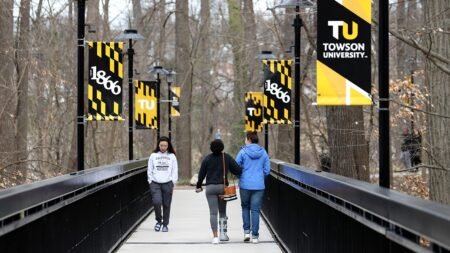The most important debate in America today is not about immigration policy but about what it means to be an American. Our immigration debate is of course a proxy for that. It’s easier to argue over asylum policy, or ICE enforcement protocols, than it is to tackle the fraught question of who is an American and who isn’t, who really belongs here and who doesn’t.
At the heart of this debate are competing historical narratives about our heritage. On the right, there’s a growing willingness to argue straightforwardly and unapologetically that America isn’t just a creed or a proposition but a nation with a shared history and culture. Vice President J.D. Vance endorsed this view last year in his acceptance speech at the Republican National Convention. “America is not just an idea,” he said. “It is a group of people with a shared history and a common future. It is, in short, a nation.”
To truly be an American, in this view, means embracing an Anglo-American and Christian inheritance and insisting on certain western cultural norms. It means rejecting multiculturalism in favor of our founding Anglo-American culture, with the understanding that preserving this cultural base is the only way to ensure liberty and dignity for all American citizens, regardless of national origin.
By contrast, the liberal narrative foisted on us aggressively for the past forty years is that if being an American means anything it should mean apologizing for your nation’s history, repudiating its Anglo-American inheritance, and celebrating non-western cultures while allowing unlimited immigration from every corner of the globe.
Resistance to that received narrative is growing. The phrase “heritage American” is now embraced by some quarters of the right that rightly think someone whose ancestors fought in the Civil War is more American than someone who just arrived here from a foreign country.
The left understands the right’s newfound confidence in asserting an American heritage and identity is a direct threat to multiculturism. To fight back, some liberals are taking direct aim at the entire concept of American heritage, deriding it as nativist and racist. A recent article in The New York Times by Leighton Woodhouse argues that the notion of a shared American identity traceable to the colonial era is historically delusional: “The founding fathers were an assortment of people from different histories and backgrounds who coexisted — often just barely — because they didn’t have any other choice but to do so.”
To back up this bizarre claim, which the founders themselves rejected, Woodhouse cites various conflicts between Puritans, Quakers, Anglicans, and Presbyterians — as if relatively minor disagreements between these different Christian groups in the colonial era is qualitatively the same as unresolvable religious conflict between Muslims and Christians, or cultural differences between American evangelicals and Pakistani Hindus.
It’s a ridiculous claim, but the tactic here is to argue that relatively tiny fissures between different Christian denominations means there was no such thing as Christian civilization to begin with, and certainly no Anglo-American identity in the colonial period that was recognizably Christian. And because all of that is “historically delusional,” as Woodhouse says, we should accept unlimited immigration from totally alien cultures and make multiculturalism the basis of American identity in the 21st century.
The point here is to distort the past for the purpose of flattening the present. All cultural distinctness in the colonial era, from the Quakers of Pennsylvania to the Puritans of New England to the Cavaliers of Virginia and South Carolina, is disingenuously put forward as evidence of a fractured cultural landscape in the English colonies, devoid of any cohesion around Christian identity or cultural norms. The virtue-signaling of the Quakers with their plain clothes, or the stubborn insistence of Lutheran immigrants on German-speaking ministers, is “no different from second- and third-generation young Americans today celebrating their Mexican, Korean, Somalian or other ancestries,” says Woodhouse.
It’s the kind of argument that sounds plausible in theory until someone actually tries to make it, at which point it sounds preposterous. Does anyone really believe that Minnesota’s unassimilated Somali immigrant population today is “no different” than the Lutheran Germans that settled in Minnesota in the mid-19th century simply because those first-wave Lutherans persisted for a time in speaking German?
The only reason to torture history like this is to degrade and ultimately destroy our Anglo-American inheritance. Woodhouse does it in the sophisticated version for the Times, but it’s basically the same thing as Mehdi Hasan’s crude assertion that Muslim slaves built America, or that if Christians are allowed to have their church bells Muslims should be allowed to blast their call to prayer through neighborhoods at all hours of the night.
But what Woodhouse and Hasan and everyone else on the left don’t seem to get is that the assertion of an Anglo-American cultural identity isn’t just for the white descendants of European colonists, it’s for every American citizen — especially for those outside the Anglo-American inheritance. Absent that inheritance, there is no way for Americans from all walks of life to live together in peace and dignity.
Without it, we will be left with nothing but warring tribes and competing cultural identities. Arguably those who come to our country from alien cultures have the most to gain by America’s embrace of its western cultural heritage. It’s the one thing that will protect them from the end-state of true multiculturalism, which is the extermination of one tribe by another, the unending cycle of clan violence that still defines much of the non-western world. It hardly needs to be said that in such societies, the only thing that keeps sectarian violence at bay is the heavy hand of the state, which in order to maintain peace cannot allow liberty.
The genius of our American nation is that we figured out how to maintain both peace and liberty. We didn’t do that thanks to some form of proto-multiculturalism, but thanks to the civilizational inheritance we received from our English fathers and Christian Europe. Only by preserving that inheritance can America continue to be a land of peace and liberty for all those who come here and make it their home.
Read the full article here












